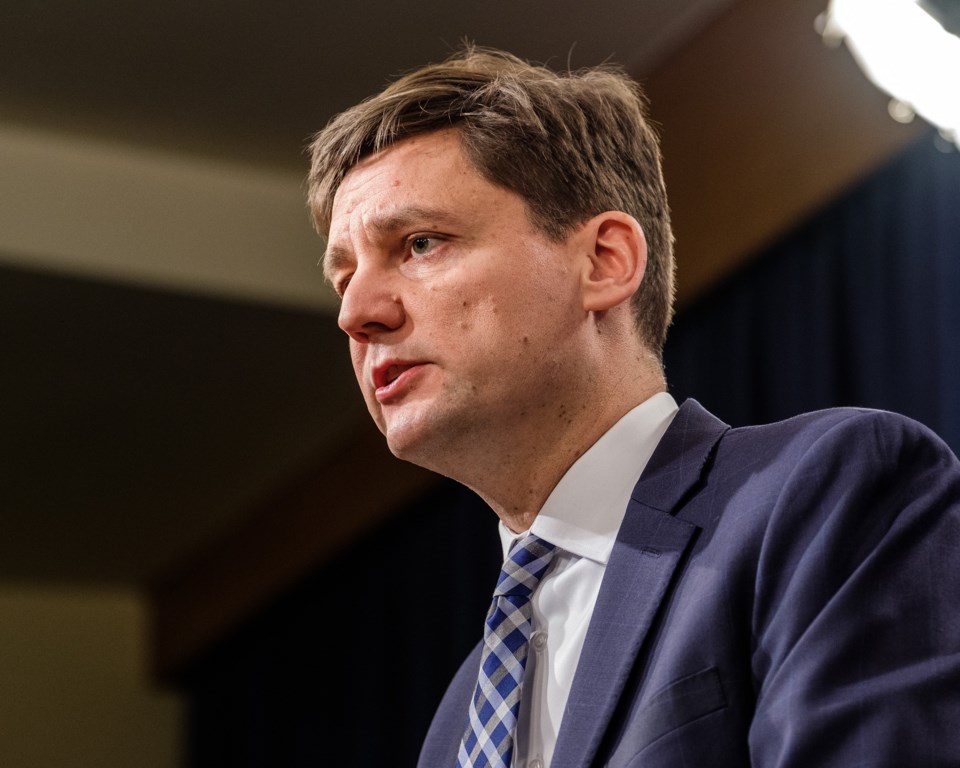 There are zero federally funded RCMP officers working the money-laundering beat, went the headline this week.
There are zero federally funded RCMP officers working the money-laundering beat, went the headline this week.
There’s a longer story behind that finding. It was excerpted from a larger report on money laundering and rushed out by Attorney General David Eby this week to make the case for more federal funding.
That policing top-up has already been promised in the federal budget. But it hasn’t been divvied up nationally yet. So Eby needed something to prove the case that B.C. needs a bigger chunk of the new money.
Peter German’s outline of how the police focus on money laundering gradually withered away recounts the recent past. But it could also hint at what’s to come.
His specific finding was that 25 officers who were committed on paper to investigating money laundering translated to five actual persons on the beat. And they were just referring suspicions to the provincial civil-forfeiture office, which is a shortcut method of dealing with the problem. So there were no officers actually dedicated to criminal money-laundering investigations.
Eby hyped that finding for maximum shock value. But RCMP shortcomings in staffing and priorities have been a fact of life in B.C. for years. German’s explanation of how it developed on money laundering makes it a bit more understandable.
It’s symptomatic of a greater problem, he said.
Police resources were focused on organized crime and terrorism about seven years ago, and that led to a dramatic decrease in commercial-crime and proceeds-of-crime enforcement in B.C.
German, a former top RCMP officer and an expert on proceeds of crime, said that many financial-crime specialists became generalists on the organized-crime teams and many others retired or moved to other sections.
At one point, there was an integrated proceeds-of-crime section that was the first-response unit when any suspicions arose. After a federal restructuring, it became “a lonely place,” he said. One officer was left in charge of two people and their main job was to disband the unit and move over to a new unit — federal and serious organized crime.
It operated in the same environment as rest of the force — facing federal austerity measures aimed at reducing the deficit. Many positions listed on rosters went unfunded. Any pay raises were funded from existing budgets, meaning services were cut.
Investigation costs rose but budgets didn’t, he said.
All the while, experienced cops were retiring, and training of replacements lagged. In B.C., the big complement of general-duty officers contracted by the B.C. government to serve communities had to be staffed, often to the detriment of “the federal business line,” meaning those specialist units.
German said even fighting forest fires resulted in federal resources being temporarily deployed to other duties.
The picture he painted in the brief chapter is one of a big, underfunded bureaucracy with dozens of urgent priorities (fentanyl, gangsters, violent crime, etc.).
It can’t possibly do them all justice, so it shuffles staff around as emergencies arise and public priorities ebb and flow.
For all the media focus it’s received in the past two years, money laundering didn’t previously sustain the attention needed to keep its place on the priority list. That’s why the list of successful prosecutions is virtually non-existent.
German said the lost specialization will take years to redevelop, and questioned whether it’s even possible.
“Some critics, including former members, simply do not feel that the force’s current structural and staffing model will allow for a revitalization of financial-crime investigations.”
Note the phrase. He’s talking about the entire field of “financial crime,” not just money laundering.
There’s a separate police presence on a joint unit dedicated to money laundering in casinos that’s in the middle of a five-year run. German said it is “cutting its teeth” but warned that the first big case it sends to prosecutors will tie up resources for years.
Although Eby described German’s findings as “startling” and needing urgent action, it was old news to his colleague, Public Safety Minister Mike Farnworth. He acknowledged them at length in the legislature a year ago.
The overarching problem is that the RCMP has dozens of urgent priorities in B.C. And when you have dozens of priorities, you have no priorities.



